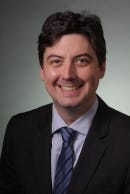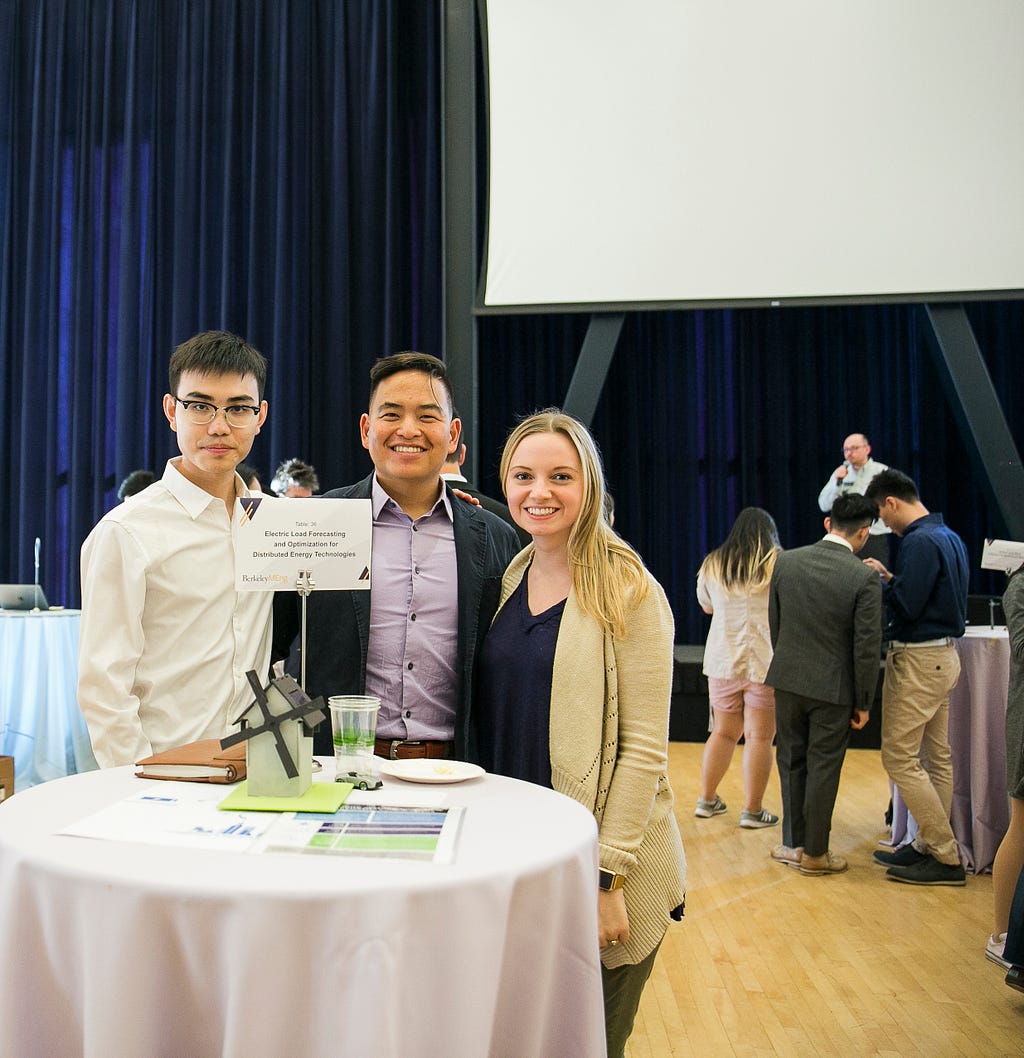Edited Ashley Villanueva
Seth Hoedl, Chief Operating & Science Officer at Post Road Foundation, received an honorable mention for the 2019 MEng Capstone Industry Mentorship Award at the 2019 Berkeley MEng Capstone Showcase. The award recognizes the Capstone advisor who fosters intellectual independence, provides project support, and furthers professional development. We asked Seth questions about his experience as an industry Capstone advisor and here’s what we learned.
What is your advising philosophy?
My advising philosophy is to both give the students enough direction that they are not “wandering in the wilderness,” but at the same time, to give them enough leeway and flexibility to explore ideas and solutions that I would not have thought of myself. There’s a risk that the students will not come to a solution as fast as they would if I gave them as much direction as I would an employee; however, I think that the added educational experience is a very worthwhile trade-off. Ultimately, in the real-world, they will have to manage projects that have an uncertain course and endpoint and I think that it is very important to let them develop skills to manage that uncertainty.What was the most memorable moment with your team?
During one of our weekly group meetings, they turned one of our stumbling blocks — a lack of hourly electric load data — into an opportunity to solve a much broader problem. Initially, we had intended to develop a distributed energy resource plan for a rural electric cooperative, on the assumption that the cooperative would have electric load data for us to evaluate. However, we learned during the project that the cooperative only had 90 days of load data due to a malfunction in their meter reading program. Rather than express exasperation, the students decided to build a tool to forecast the electric load data. This was a critical insight as a lack of hourly load data is an enormous challenge for many utilities nation wide, and a solution to this problem would have much greater importance, and use, then a distributed energy resource plan for one particular utility. It was a great pivot that demonstrated the student’s entrepreneurial skills and drive. Their solution still needs some work, but just identifying a problem to solve is incredibly useful.What’s unique about Berkeley MEng students compared to students from other universities?
Fung students are very focused on practical applications, and preparing for careers with real-world impact. My team was eager to learn new topics and skills, such as machine learning, and to apply those skills to a practical problem. In their case, it was forecasting electrical load. They also conducted themselves with the utmost professionalism, as if I was a client rather than an advisor!What led you to propose an MEng Capstone project?
First, the free help! How can one turn down free help from a group of world-class Berkeley students? I run a non-profit startup and can use all the extra help I can find. Working with Fung is also a great way to engage with Berkeley and make connections to world-class faculty and research. In addition, I have a very soft spot for academia and love mentoring students. It was a joy to work with them.How did you go about recruiting your team?
The Fung program made it very easy — there was an online profile for me to post and a project “fair” in August where I described our project to prospective students. When they applied, I made a point of personally interviewing each student at my office to gauge their interests, skills set and commitment. I also aimed to gather a set of students with skills and interests that would compliment each other. Our project was very cross-disciplinary and I needed students with a variety backgrounds.What advice would you give to industry partners who’ll be advising a Capstone team in the future?
I would give two pieces of advice. First, and most importantly, give students a project that is important for your organization, but that you are not relying on for your immediate goals. I say that not just because they may not develop a solution to your particular problem, but because they will get more out of the experience if they are given latitude to pursue their own ideas, some of which may work, and some of which may fail. Second, be more of a sounding board rather than a direct manager. That’s not to say that an advisor shouldn’t give guidance — if they need specific direction because their work is about to head over a cliff or because they are asking for your input, go ahead and give specific direction. But, generally, I think they will learn more if they are given the latitude to manage themselves. You may also be pleasantly surprised by the solutions that they develop! Third, take your role as an advisor seriously. An industry partner can get a lot out of a Capstone team, but the advisor has to be able and willing to put in time and effort to guide that team effectively. It’s a form of rewarding service for the Advisor.How will your project be different next year? What are you planning on doing different next year?
This year’s project was very “blue sky” and open-ended. I think next year we will have a narrower focus on a particular problem, not because the “blue sky” approach didn’t work for the students or my organization, but rather because our needs will be more focused.How did the Capstone team advance this technology? What was their major accomplishment? How can next year’s team continue the work?
Our project pertained to smart utility systems and fiber optic networks for broadband access in rural America. It was very “blue-sky” and open-ended. As such, their biggest contribution was narrowing the types of solutions, such as machine learning for electric load prediction, that we will pursue next year. They also developed a useful energy-planning tool for large commercial and industrial customers that we will be applying going forward. Next year’s team will probably have a narrower focus on a particular topic that this year’s team identified. We might ask them to pursue the load prediction tool, building off of this year’s work. Alternatively, we might ask them to develop a tool for predicting the CO2 savings generated by novel forms of distributed energy resource systems, such as transactive energy systems.About Seth’s Capstone team:

Electric Load Forecasting and Optimization for Distributed Energy Technologies
Creating Value for Rural Electric Communities in Michigan Team: Zihao Zhang [NE], Liwei Chen [CE], Elizabeth Foster [ME] Project Description: Small electric utilities often lack the sensor infrastructure to monitor their load effectively. This lack of data hinders their ability to take advantage of new distributed energy resources that can improve grid resiliency and reduce peak demand. The Post Road Foundation team developed an electrical load forecasting model that uses limited data sets to accurately predict load across a year for rural electric utilities, which can eventually be used to optimize the deployment of distributed energy resources. Connect with Seth.Advisor Feature: Seth Hoedl, Post Road Foundation was originally published in Berkeley Master of Engineering on Medium, where people are continuing the conversation by highlighting and responding to this story.




